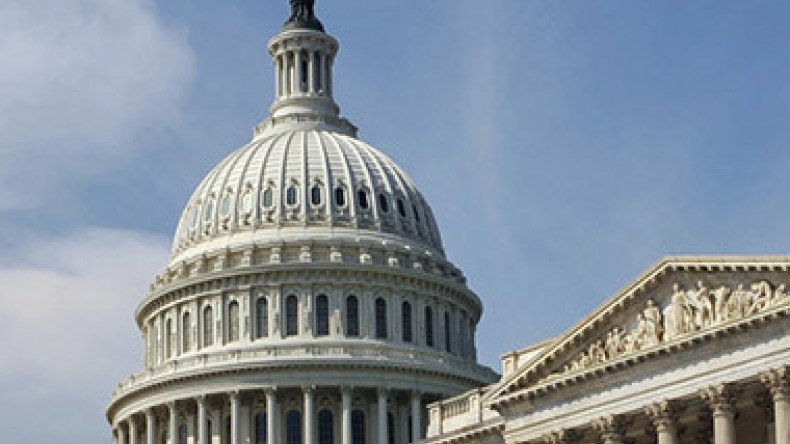
Raising US debt profitable economically, unfavorable politically – experts
Increasing US federal borrowing limit is beneficial for the overall US economy, however it can have political repercussions, experts told Sputnik commenting on the US government reaching a federal debt ceiling of $18.1 trillion last Sunday.
“There is no good economic reason why the debt should not go up,” George Washington University Law Professor and author of the book “The Debt Ceiling Disasters” Neil Buchanan told Sputnik.
“Trying to reduce total debt is a bad economic strategy,” Buchanan said.
Similarly to businesses that increase borrowing with growth, he explained, the US government can borrow more funds over time for its needs and will be able to repay interest on the debt from a growing economy.
“Politically, it is not a good thing to be running up debt on a sustained long-run basis,” Johns Hopkins University Applied Economics Professor Steve Hanke told Sputnik.
Raising the US federal debt limit is malpractice because it allows the political class to borrow and invest funds at present that are not being timely paid for, Hanke said.
“They [US government] are getting something supplied but they are not having to pay 100 percent. Somebody else in the future is going to pay for it,” he underscored.
Brandon Arnold, who serves as National Taxpayers Union Executive Vice President, also argued that increasing the US debt limit is not a good way to conduct public policy.
“Is it a fiscally responsible manner to govern in this fashion? I would say probably not, I think Congress should pursue some long-term changes to our finances that would put us on better financial footing,” Arnold told Sputnik.
Since the debt has been growing dramatically in recent years, the US federal debt accumulation is becoming a serious problem, Arnold noted.
“We are spending this year, for instance, a half trillion dollars more than we are bringing in in revenues, and that is problem,” he said.
Arnold also said that US President Barack Obama and the Republican-controlled Congress will probably wait “until the absolute last minute” to come to an agreement on the US federal borrowing limit extension.
“I wish that was not the case, but I would say that is the most likely scenario,” Arnold concluded.
The US Congressional Budget Office has warned Washington may run out of money by October or November, 2015.
Since 1960, US Congress has acted 78 times to permanently raise, temporarily extend or revise the definition of the debt limit, according to the US Treasury Department.
Newsfeed
Videos






























